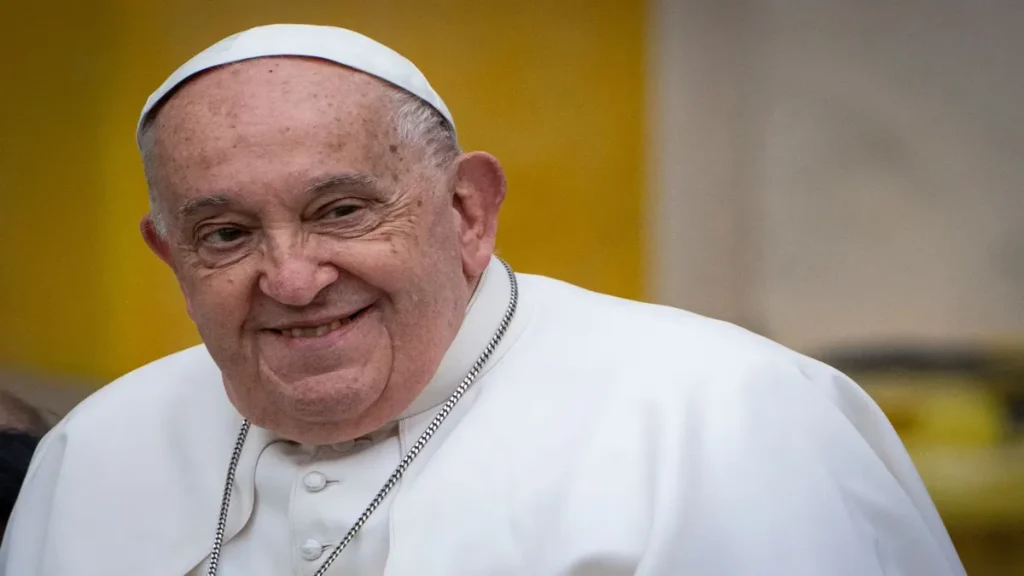The Vatican has confirmed the death of Pope Francis, spiritual leader of over 1.3 billion Catholics worldwide. The beloved pontiff passed away peacefully at Casa Santa Marta in Vatican City on the morning of Monday, April 21, 2025, at the age of 88, following several days of deteriorating health.
In a statement delivered from the chapel of Domus Sanctae Marthae, where Pope Francis lived, Cardinal Kevin Farrell, the Vatican Camerlengo, announced:
“Dearest brothers and sisters, with deep sorrow, I must announce the death of our Holy Father Francis. At 7:35 this morning, the Bishop of Rome, Francis, returned to the Father’s house. His entire life was dedicated to the service of the Lord and His Church.”
A Humble Life, A Transformational Papacy
Born Jorge Mario Bergoglio in Buenos Aires, Argentina, Pope Francis became the first Jesuit, the first Latin American, and the first non-European pope in over 1,200 years when elected in 2013.
Throughout his 12-year papacy, he became known for his radical humility, devotion to the poor, and outspoken advocacy for social and environmental justice. He chose simplicity over grandeur, residing in a modest guesthouse rather than the Apostolic Palace, and famously urged clergy to be “shepherds with the smell of the sheep.”
Immediately after his death, Vatican tradition moved swiftly into action. Cardinal Kevin Farrell, as Camerlengo and acting head of the Church during the interregnum, officially confirmed the pope’s passing.
Later that afternoon, the papal apartment in the Apostolic Palace—though unused by Francis—was ceremonially sealed, a symbolic act marking the end of his papacy. In accordance with tradition, the Fisherman’s Ring, a key symbol of papal authority, was destroyed to prevent misuse or forgery.
Nine Days of Mourning (Novemdiales)
The Church has now entered the Novemdiales, a nine-day period of mourning. Vatican officials announced that Pope Francis’s body will lie in state at St. Peter’s Basilica starting Wednesday, allowing the faithful to pay their respects.
His funeral will be held between the fourth and sixth day after his death, in accordance with canon law. World leaders, religious dignitaries, and tens of thousands of pilgrims are expected to attend. Unofficial ceremonies are also being planned in Buenos Aires, his homeland.
The Road to a New Pope: Conclave Approaches
In few days, following the funeral, the College of Cardinals—those under the age of 80—will gather in the Sistine Chapel for the sacred and secretive papal conclave to elect the 267th pope.
Cardinals will be locked inside Vatican grounds, cut off from all outside communication. They will vote up to four times per day, burning ballots after each session—black smoke indicates no decision, while white smoke signals the election of a new pontiff.
The process may take days or even weeks, depending on how quickly consensus is reached.
Tributes have poured in from around the world. In St. Peter’s Square, mourners lit candles and sang hymns. In Buenos Aires, bells tolled across cathedrals and spontaneous processions formed.
“He redefined the papacy not with power, but with presence,” said one pilgrim outside St. Peter’s Basilica. “He was the pope who walked with us.”
In his final public appearance just weeks ago, a visibly weakened Francis stood at the window of the Apostolic Palace and offered a parting prayer:
“May we never grow tired of mercy. It is the beating heart of the Gospel.”
As the world prepares to say goodbye, Pope Francis leaves behind not just a legacy of leadership—but a lasting call to live with grace, humility, and compassion for the least among us.
Global Leaders React
President Donald Trump posted a brief message of condolence on social media:
“Rest in Peace Pope Francis. May God bless him and all who loved him.”
President Vladimir V. Putin of Russia praised Francis as a defender of “the high values of humanism and justice” and a spiritual leader who fostered interfaith dialogue with the Russian Orthodox Church.
“I will always cherish the fondest memories of him,” Putin said.
However, Pope Francis faced occasional criticism from Russia, particularly over his position on the Russia-Ukraine war, where his calls for peace were seen by some as lacking direct condemnation of aggressors.

